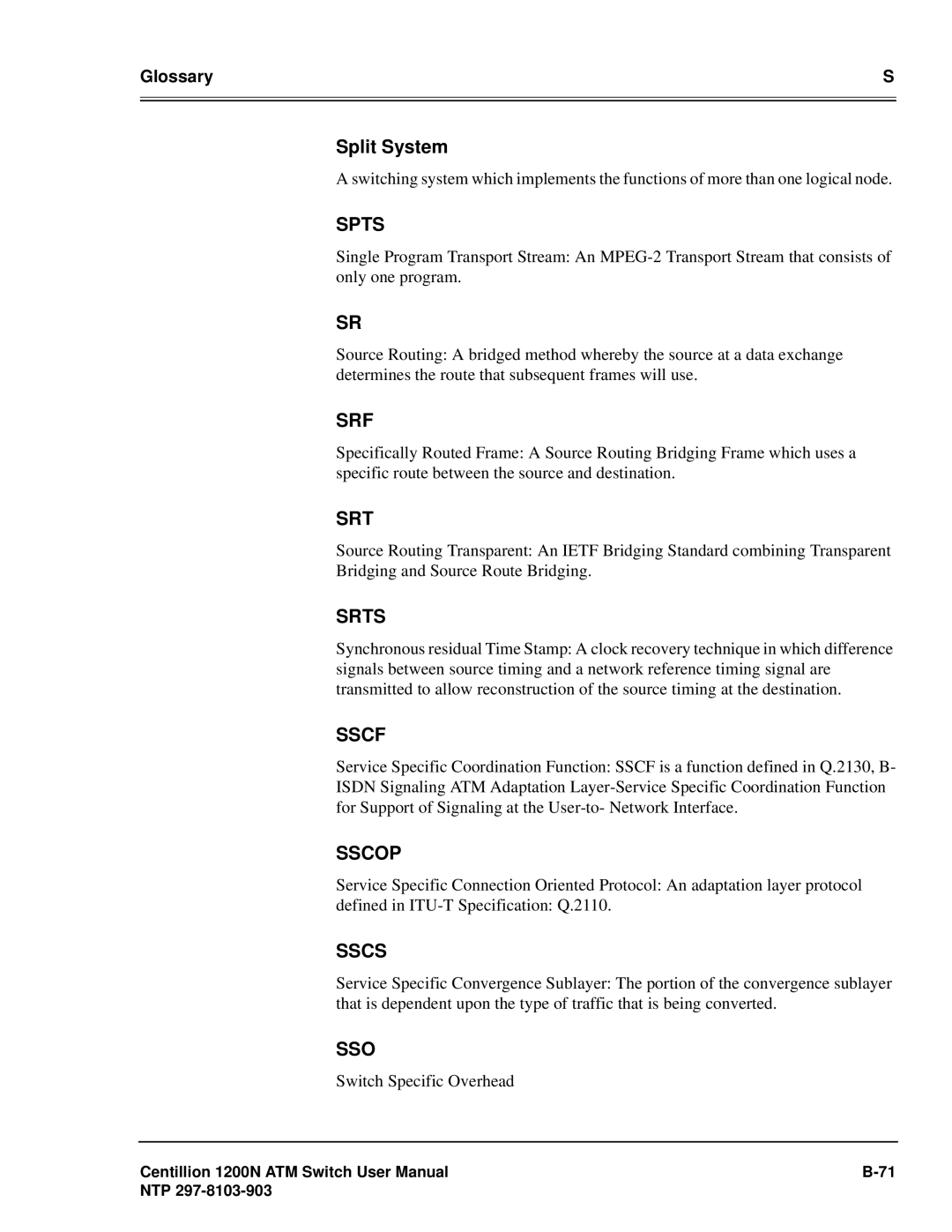Glossary | S |
|
|
|
|
Split System
A switching system which implements the functions of more than one logical node.
SPTS
Single Program Transport Stream: An
SR
Source Routing: A bridged method whereby the source at a data exchange determines the route that subsequent frames will use.
SRF
Specifically Routed Frame: A Source Routing Bridging Frame which uses a specific route between the source and destination.
SRT
Source Routing Transparent: An IETF Bridging Standard combining Transparent Bridging and Source Route Bridging.
SRTS
Synchronous residual Time Stamp: A clock recovery technique in which difference signals between source timing and a network reference timing signal are transmitted to allow reconstruction of the source timing at the destination.
SSCF
Service Specific Coordination Function: SSCF is a function defined in Q.2130, B- ISDN Signaling ATM Adaptation
SSCOP
Service Specific Connection Oriented Protocol: An adaptation layer protocol
defined in
SSCS
Service Specific Convergence Sublayer: The portion of the convergence sublayer that is dependent upon the type of traffic that is being converted.
SSO
Switch Specific Overhead
Centillion 1200N ATM Switch User Manual | |
NTP |
|
